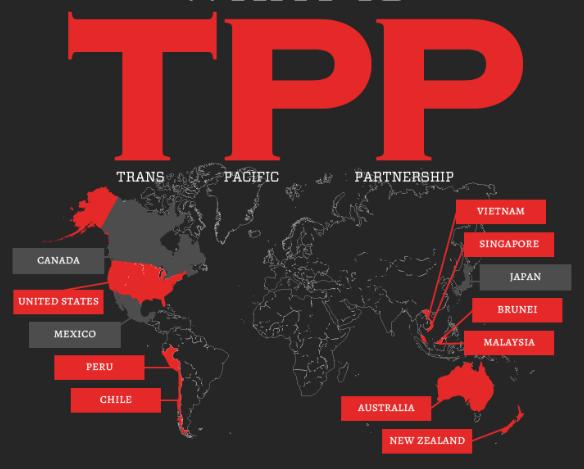There were some decidedly Kafkaesque aspects of the Congressional debate this week on Fast Track legislation, designed to speed through the passage of secret trade deals that could have a serious impact on our food system. At first, the Senate refused to approve a bill to limit debate on Fast Track. Then, when the Senate did approve that bill, it turned out the real debate over Fast Track wouldn’t be happening in the Senate at all, but rather in the House (but not yet).
What?? Essentially, the Senate votes this week were over a procedural mechanism (cloture) to bring Fast Track to a vote (but not yet over Fast Track itself). The actual Fast Track vote will likely come in the Senate in the next few weeks. As we’ve discussed before, Fast Track would limit Congressional debate on trade agreements to an up or down vote, no amendments allowed. It would include the Trans Pacific Partnership (TPP, with 11 other Pacific Rim countries) and the Transatlantic Trade and Investment Partnership (TTIP, with Europe) and any other trade agreements negotiated over the next six years, including those completed by the next President. The votes this week were notable mainly because the Senate action had been expected to pave the way for a much more contentious vote in the House of Representatives. And it didn’t work out that way at all.
So much of the debate on free trade agreements is about unmasking the corporate agenda in what appear to be obscure legal texts. “Free trade” agreements are for the most part not about trade at all. Writing about Investor-State Dispute Settlement (included in both TPP and TTIP) in The Guardian this week, Nobel Laureate Joseph Stiglitz commented, “Rules and regulations determine the kind of economy and society in which people live. They affect relative bargaining power, with important implications for inequality, a growing problem around the world. The question is whether we should allow rich corporations to use provisions hidden in so-called trade agreements to dictate how we will live in the 21st century.”
These rules matter for our food system as well. Whether it’s the GMO labeling law in Vermont, limits on eggs produced in battery cages in California, or ambitious efforts to connect farmers, eaters and decision-makers in food policy councils across the country, people are taking action to create new rules to rebuild our broken food system. On those issues, the bottom line is that trade deals create new obstacles to change.

